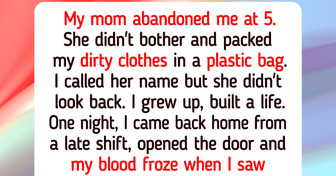I have to say, it was a very difficult decision but I wouldn't have just said no. I would have explained that you have been sacrificing for years to fulfill your dream , of having a baby and you aren't willing to give up, when you are at the door of realizing you desire of being a mom. I would have said that I will help you by setting up a go fund me page for your niece. There are many people out there willing to make donations to help a sick child. Not only that but I would check into St Jude to see if this is something they would treat. I don't feel that you are being selfish but I think you can show compassion by assisting with the Go fund me page. I believe your family is wrong to expect you to give up your dream of being a mom especially since you have sacrificed everything to obtain your dream. They can also have fund raising through a local church, school or radio station.
I Refused to Sacrifice My Unborn Baby to Save My Niece’s Life—Now My Family Calls Me a Monster
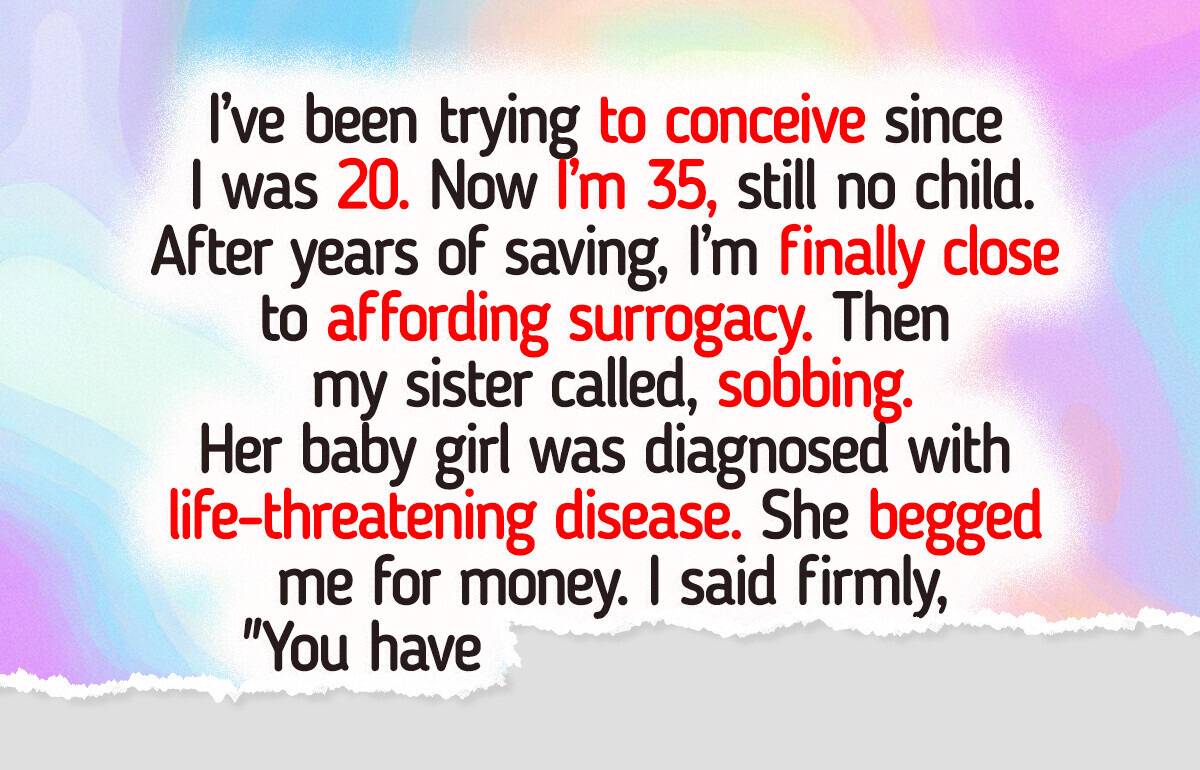
We received a letter to our editorial team from a woman whose story struck us deeply. After years of longing and struggle to become a mother, she finally found hope—but was faced with a heartbreaking choice that tested her love, family ties, and dreams in ways no one should ever have to face. Read her powerful story about the impossible decisions surrounding motherhood and family, and discover what happens when hope and heartbreak collide.

Here’s Emily’s letter:
“Hi Bright Side,
I’m Emily. I’ve been trying to conceive since I was 20. Now I’m 35, still no child. Infertility crushed my soul. Every failed pregnancy, every painful test, left scars nobody saw.
My husband and I finally decided on surrogacy as our only shot. We sacrificed everything. I mean everything. No holidays, no new clothes, no nights out. I sold my car. He worked overtime.
We lived like monks to save every cent. Now, after years of hell, we finally have almost enough money, and we’re finally close to affording surrogacy.
Then my sister Sarah called, sobbing uncontrollably. Her 6-month-old daughter, Elsa, was diagnosed with a life-threatening illness. The treatment costs nearly all the money we saved for surrogacy. Sarah begged me to help.
I told her straight up, ‘I can’t give you the money. You have a baby. I have nothing. This is my one chance. I won’t give up my dream.’
She lost it. Screamed at me. Called me cold, selfish, and said I’m choosing a hypothetical child over a real, living baby who might die.
My parents turned on me too. They say I’m a monster. My entire family is pressuring me to give the money. But let me be clear: I don’t owe my sister anything.
I love my niece, but my entire life I’ve been pushed aside because I don’t have kids. Nobody asked how I felt after miscarriages, IVF failures, or the endless grief. Now that I finally have hope, suddenly I’m the bad guy?
If I give this money away, I lose my last chance to be a mother. I’m 35. My fertility window is closing fast. My dream is slipping away — all for a family that thinks I should just sacrifice my entire life for their crisis.
So I’m torn — am I the selfish monster here? Or does anyone else get how it feels to be erased for years, only to be expected to drop everything the moment your family needs you?”
Dear Emily,
Thank you for your courage in sharing your deeply personal and heartbreaking story with us and our readers. We know how difficult it must have been to open up about such an emotional and divisive family conflict. Your honesty allows others in similar situations to feel seen and understood. We sincerely hope that our advice can offer you guidance, comfort, and strength as you navigate this painful chapter in your life.
1️⃣ Acknowledge the validity of your emotions.
It’s important to understand that conflicting emotions — love for your niece and desire for your own child — can coexist. You are not wrong for feeling grief, guilt, sadness, or even relief. Research on emotional complexity shows that recognizing and accepting mixed emotions contributes to psychological resilience and better emotional regulation.
2️⃣ Set boundaries with your family.
Family pressure can be emotionally draining, especially when your loved ones don’t acknowledge your years of struggle. Licensed therapists emphasize that setting and maintaining clear emotional boundaries is essential for your mental health. Boundaries are not about shutting people out, but about protecting your well-being and preventing long-term resentment.
3️⃣ Approach rebuilding your relationship with your sister gradually.
Your sister is grieving and reacting from a place of desperation and fear. Therapists emphasize starting with small, honest conversations focused on shared emotions rather than accusations. Acknowledge her pain while gently asserting your own. Over time, mutual understanding may grow, even if full agreement is never reached.
4️⃣ Release guilt through acceptance therapy.
Feeling guilt after making a difficult choice is normal, but prolonged guilt can be paralyzing. Acceptance and Commitment Therapy (ACT) teaches that painful emotions are part of life, and the key is to accept them while staying committed to your values and long-term goals. This approach helps individuals navigate guilt and self-blame in a healthier, more sustainable way.
And here’s yet another deeply controversial story from Sam, a 35-year-old father, who has raised his 12-year-old daughter with unwavering devotion. But everything changed after one visit to her mom’s house. His story isn’t just about family — it’s about identity, betrayal, and the quiet breaking point so many parents silently carry. Sam needs to know: Did he go too far, or was he finally standing up for himself?
Comments
Yes, you are an awful person ... mean, so, so obviously. If that child dies, you killed her, period. The importance you place on your becoming a mother is excessive to point of creepy, and there is a child you could save. A real child, not some hypothetical. With ethical sense like your, do you really think you'd be a good mom anyway? Any child of yours would just a doll that you use as a tool to validate your existence. Noone worthy of motherhood would fail to come through for family in this situation. I feel sorry for any future child you may have, they will have a selfish, cold mother with no remaining extended family.
Related Reads
My Sister Punished Me for Adopting a Baby Because I Can’t Babysit Her Kids Anymore
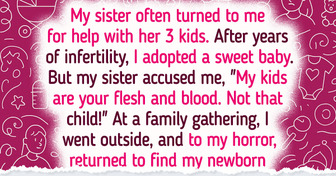
My Husband Moved In With His Friend Because Our Newborn Was "Too Loud" — I Taught Him a Lesson
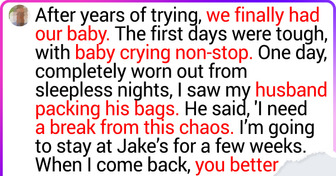
I’m Divorcing My Wife Because Her Entitled Family Invaded Our House
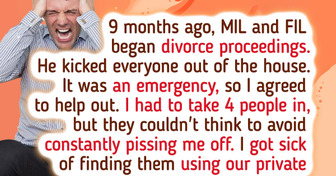
My Fiancé Wants a Joint Account, but I Don’t Want to Lose Control Over My Money
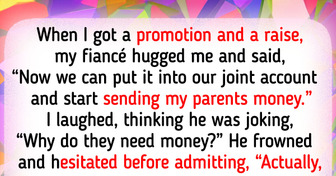
I Refused to Take My Pregnant Stepmother to the Hospital

My Adult Stepdaughter and Her Kids Turned Our Home Upside Down, I Left and Refuse to Return Until They Are There
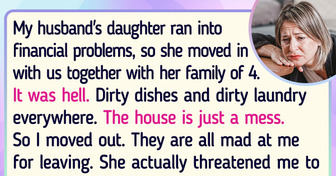
20 Family Betrayals That Felt Like a Punch to the Gut
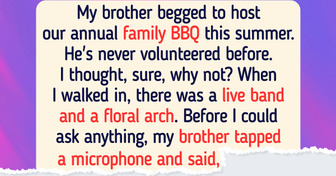
20 Moments That Remind Us to Stay Kind, Even When Life Gets Unfair

12 Stories That Prove a Quiet Kindness Can Make the Loudest Difference
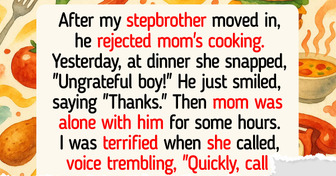
10 People Who Saw Their Coworkers’ True Colors Before It Was Too Late
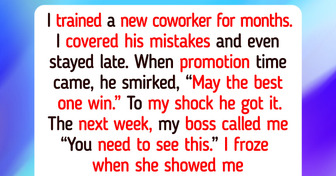
My Friends Mocked My Vegan Diet On Vacation, but I Got My Revenge
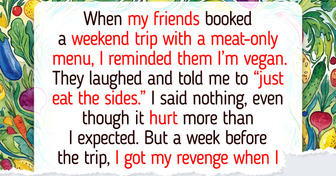
17 Moments That Prove Kindness Is the Strongest Payback
